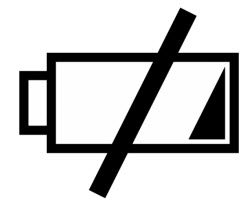Android app ads account for up to 75 percent of battery drain


Using a specially-developed energy profiling tool called EProf the team tested five popular Android applications - Angry Birds, Free Chess, the Android browser, MapQuest and the New York Times app - on an HTC Passion (Nexus One) running Android 2.3. The results were are quite eye-opening.
While playing a level of Angry Birds, 70 percent of the battery drain was as a result of the game uploading user data in the background, such as location information) and the downloading and displaying of ads to the user. Free Chess also showed similar energy-sapping behavior, this time ads alone accounting for 70 percent of the battery drain.
The team claim that this excessive battery consumption is down to poorly-coded ad modules, and hope that more information will allow developers and advertisers to write more efficient code.
Ads aren't the only thing sucking the battery dry. Both the Android browser and the New York Times app consumed around 15 percent of battery power on user tracking alone. The EProf tool also discovered bugs in apps such as Facebook's Android app that also cause the battery to be drained more rapidly that necessary by not allowing the CPU to enter sleep mode even after the app has been terminated.
The complete report is quite in-depth, but if you're an Android app developer, of you develop ad modules for apps then I suggest you take the time to have a read through it. It could very well help your app consume less of your user's battery life.
The team plans to make the EProf tool under an open-source license shortly.
Related:
- Will Android tablets overtake the iPad by 2015?
- New iPad (aka iPad 3) benchmarked
- Why Apple doesn’t need to innovate much to stay ahead of the competition
- Are consumers expected to take Windows 8 ARM tablets mainstream?
- New iPad’s most revolutionary feature is its battery
- New iPad is bad news for Android tablets
- iPad 3 will help Apple grab 70 percent of the tablet market in 2012
- 2011 - The year of the Android malware